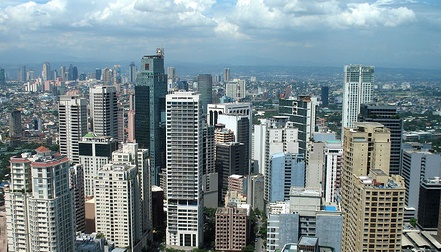Prices of 3-bedroom condominium units in Makati CBD down 1.65% y-o-y in Q1 2020
After eight years of uninterrupted house price rises, the Philippines’ housing market is now cooling rapidly. The average price of 3-bedroom condominium units in Makati CBD fell by 1.65% during the year to Q1 2020, a sharp turnaround from the prior year’s 15.75% growth. It is now the fourth consecutive quarter of y-o-y decline. Though quarter-on-quarter, house prices rose strongly by 5.69% in Q1 2020.

Demand weakens
Take-up is softening, especially in Rockwell Centre, Makati CBD, Bay Area and Fort Bonifacio, as offshore gaming and outsourcing segments were temporarily closed due to the COVID-19 pandemic. As such, vacancy in the secondary residential market is projected to rise this year, according to Colliers International.
Makati CBD property prices have risen by almost 132% from 2010 to 2018, amidst strong demand and rapid economic growth.
Rents, rental yields; good yields at 6.13%
Metro Manila apartment costs are moderate, at around $3,952 per sq. m.
| Philippines: typical city centre apartment buying price, monthly rent (120 sq. m) | |||
| Buying price | Rate per month | Yield | |
| Metro Manila | $474,240 | $2,422 | 6.13% |
Recent news:Philippine economy contracts for the first time in more than two decades. The Philippine economy shrank by 0.2% year-on-year in the first quarter of 2020, contrasting the 6.7% growth registered in Q4 2019 and 5.6% in Q1 2019, according to the Philippine Statistics Authority (PSA), amidst coronavirus-related lockdowns, business closures, and cancelled flights and job losses. It was the country’s first economic contraction since the 1998 Asian Financial Crisis. Q2 GDP figures are expected to be much worse as extended lockdowns take a heavier toll on domestic demand.
Recently, the government revised down its 2020 economic forecast for the Philippines to a contraction of 2% to 3.4%, worse than its earlier projection of 0% to -1%. The budget deficit is also expected to reach PHP 1.56 trillion (US$31 billion) or about 8.1% of the country’s GDP, more than double its original estimate of a 3.2% shortfall.